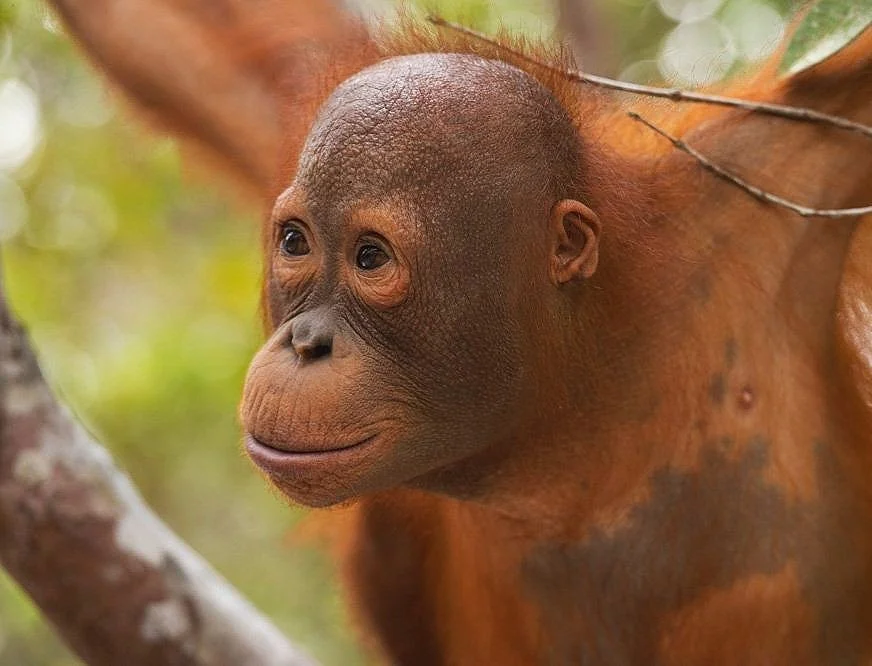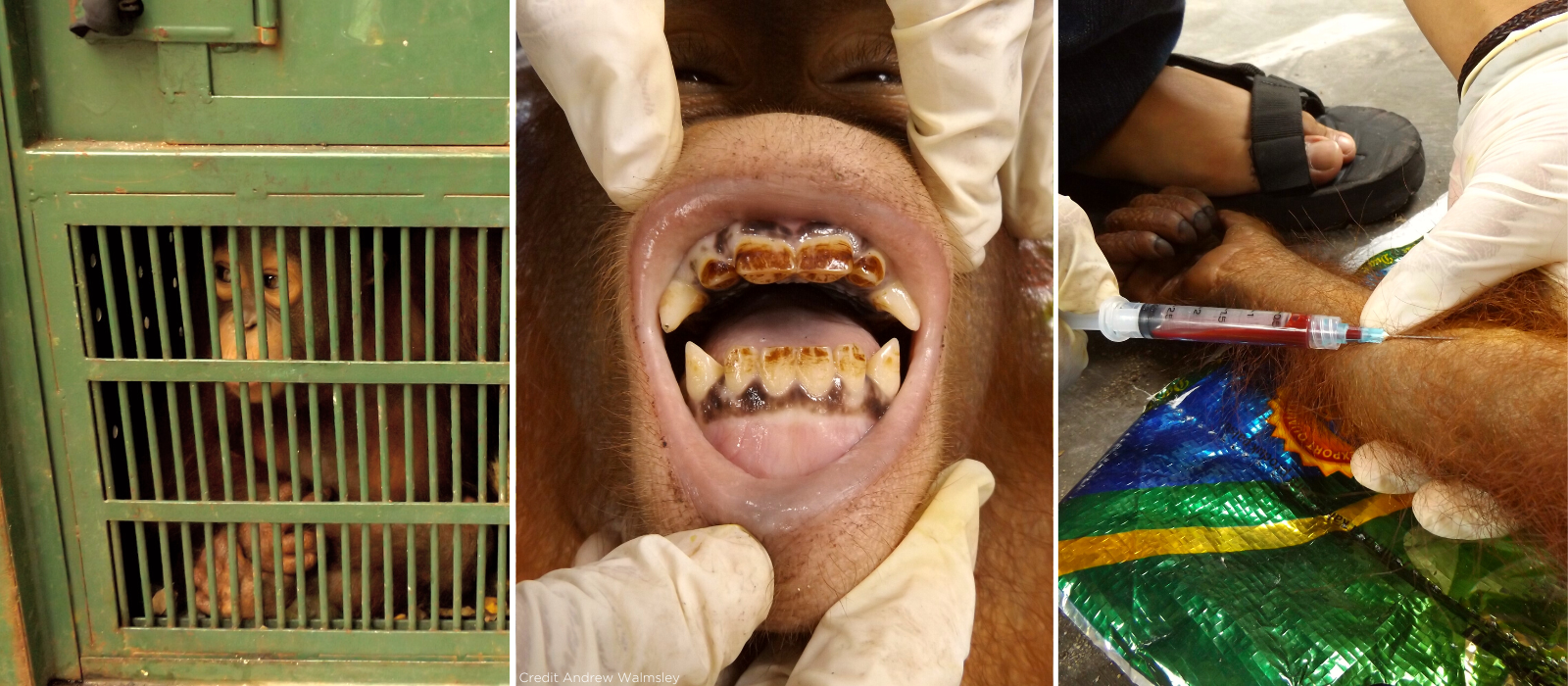Orangutan Stories: Boy
Orangutans are like humans in so many ways. We share around 97% of our DNA which means that biologically speaking there are a number of similarities. We have the same number of teeth, both age in a comparable way, and we can even use a human pregnancy test to check for prospective orangutan mothers!
This means that humans and great apes can also suffer from the same ailments, and orphaned orangutan Boy’s medical history is a prime example of this.
Boy is discovered at a local village in April 2017
As a three-year-old, Boy was separated from his mother and then kept as a pet in a local village. Cages can dramatically restrict an orangutan’s development, and after a few months on his own, Orangutan Foundation staff and government officials BKSDA were alerted to Boy’s presence and hurried to his aid. A thorough medical examination from our vet showed that despite his ordeal, Boy was in good health and ready to embark on his next chapter in the Foundation’s soft-release programme within the protected Lamandau Wildlife Reserve.
On his rescue, Boy receives a full-body examination to check his health
In the wild orangutans are a semi-solitary species, which means that although they generally explore their habitat independently, from time to time they do interact with one another. While they develop their natural abilities in our soft-release programme though, Boy and the other orphaned orangutans spend many hours together, learning and playing with one another on their daily trips to the forest.
Boy enjoys company and is perhaps one the most sociable of the young primates under our supervision. He loves exploring the trees with fellow orphan Adib as they climb and practice nest-building. In fact, Boy has even been spotted spending time with wild infant Marsha, until her mother Mores intervened and playfully shooed him away!
Boy swings in the trees with his campmates
Like the other orphaned orangutans in our care, Boy receives regular health check-ups to monitor his development, but recently we discovered something a little unusual. Last month Boy didn’t appear to be himself, he was vomiting and looked very weak and lethargic. Blood tests revealed that he had caught a cold and was suffering from anaemia, a condition which can occur from a lack of iron in the blood, so a course of multivitamin injections and medicines was prescribed by our vet to help alleviate this.
Another ailment which has affected the young male from time to time over the years is hair loss. Like us, every orangutan is unique so they each have varying amounts of hair on their body, but Boy has experienced unusual periods of baldness in recent times. It’s not thought that this is linked to his recent anaemia, so to treat this, our team have begun to use a new shampoo when washing him in the river which will hopefully encourage growth.
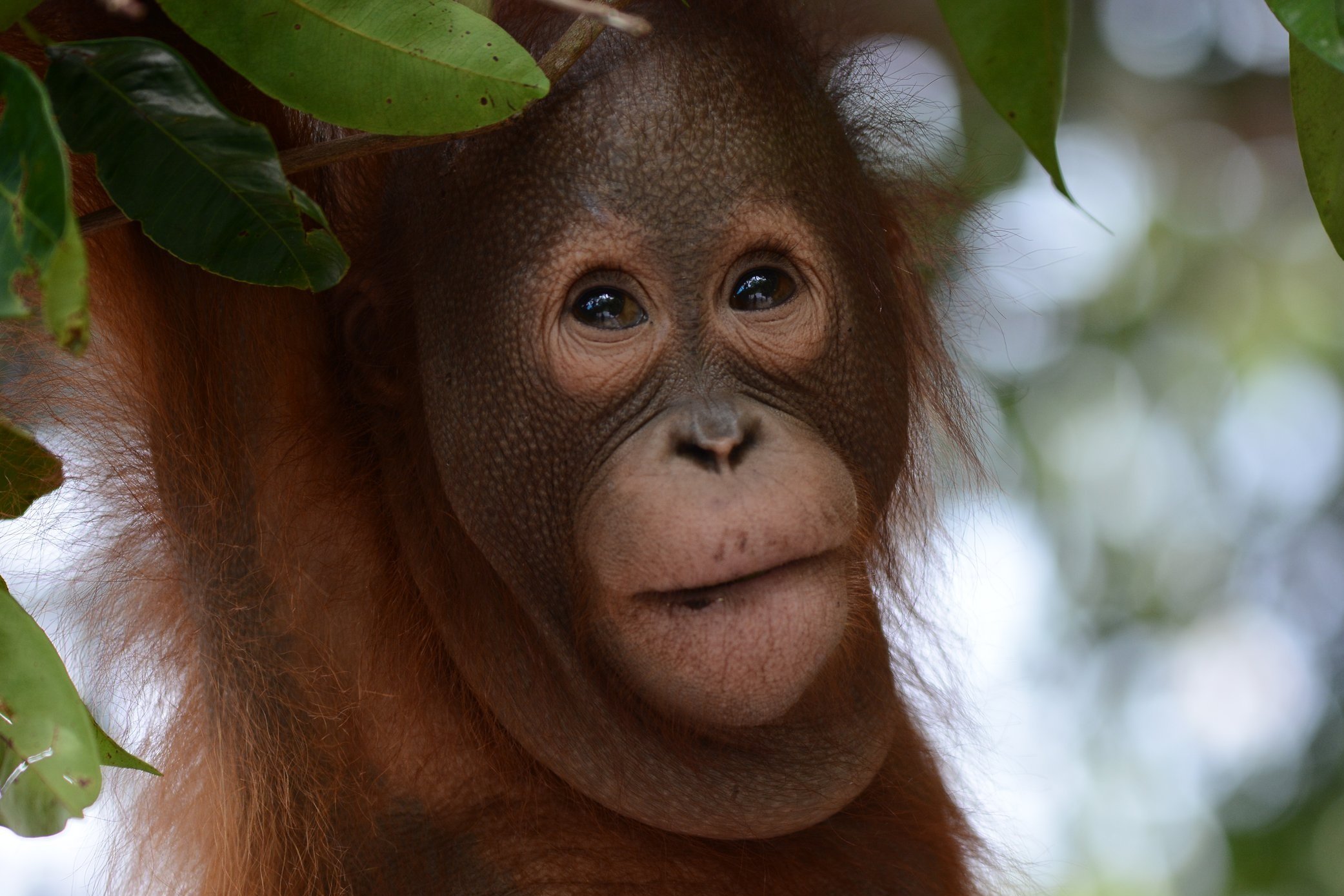
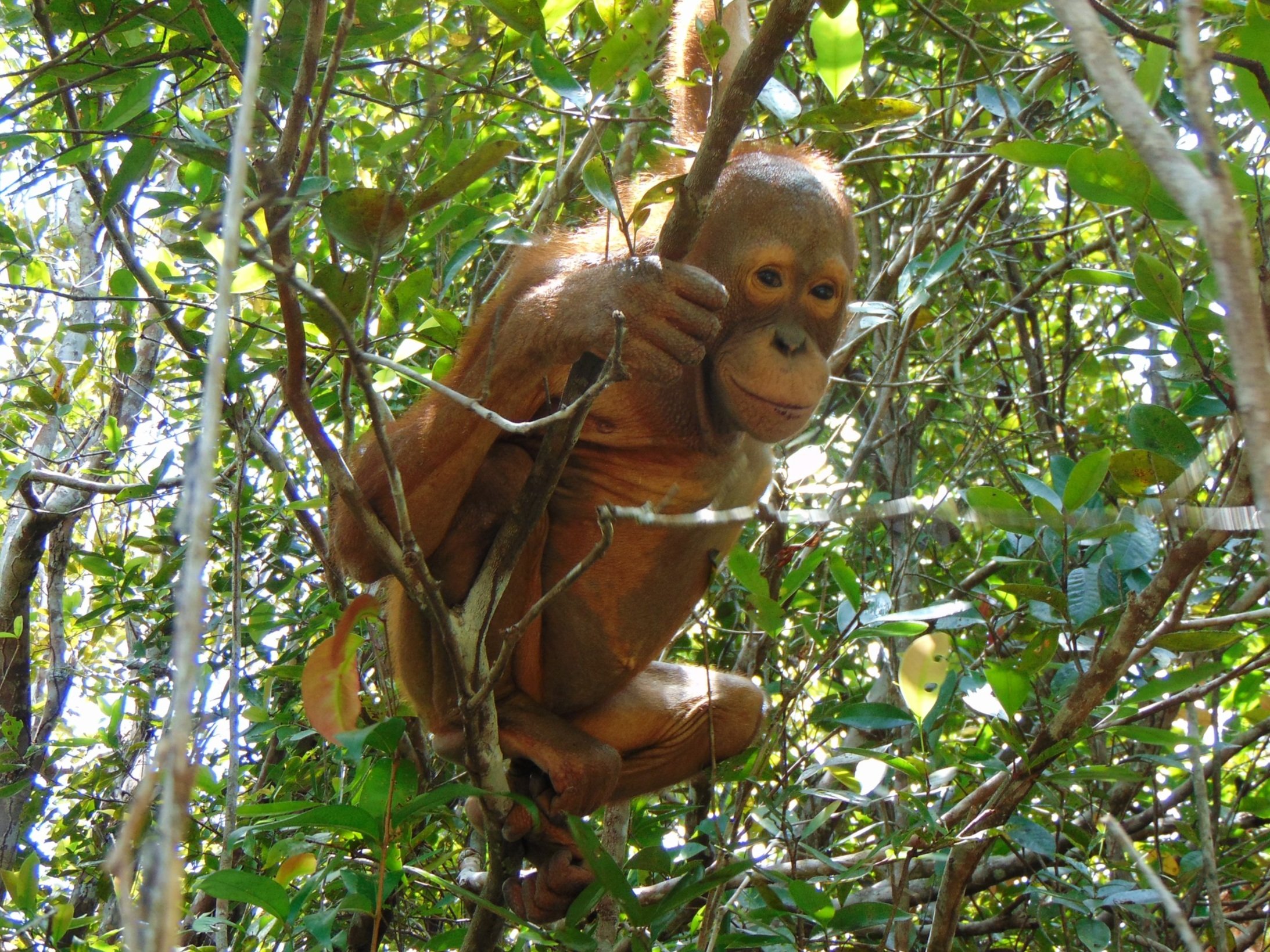
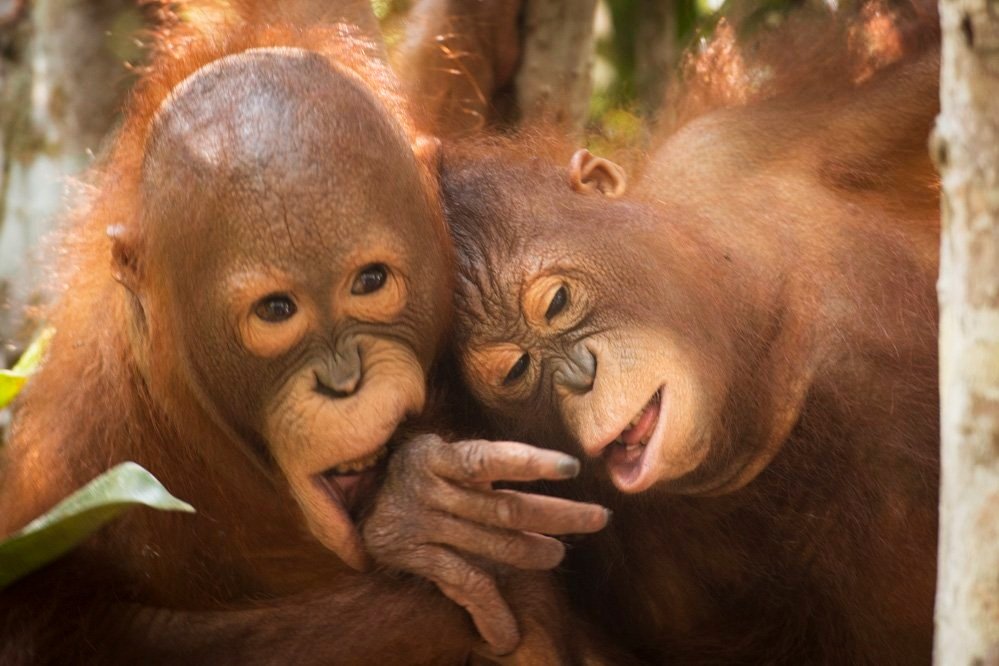
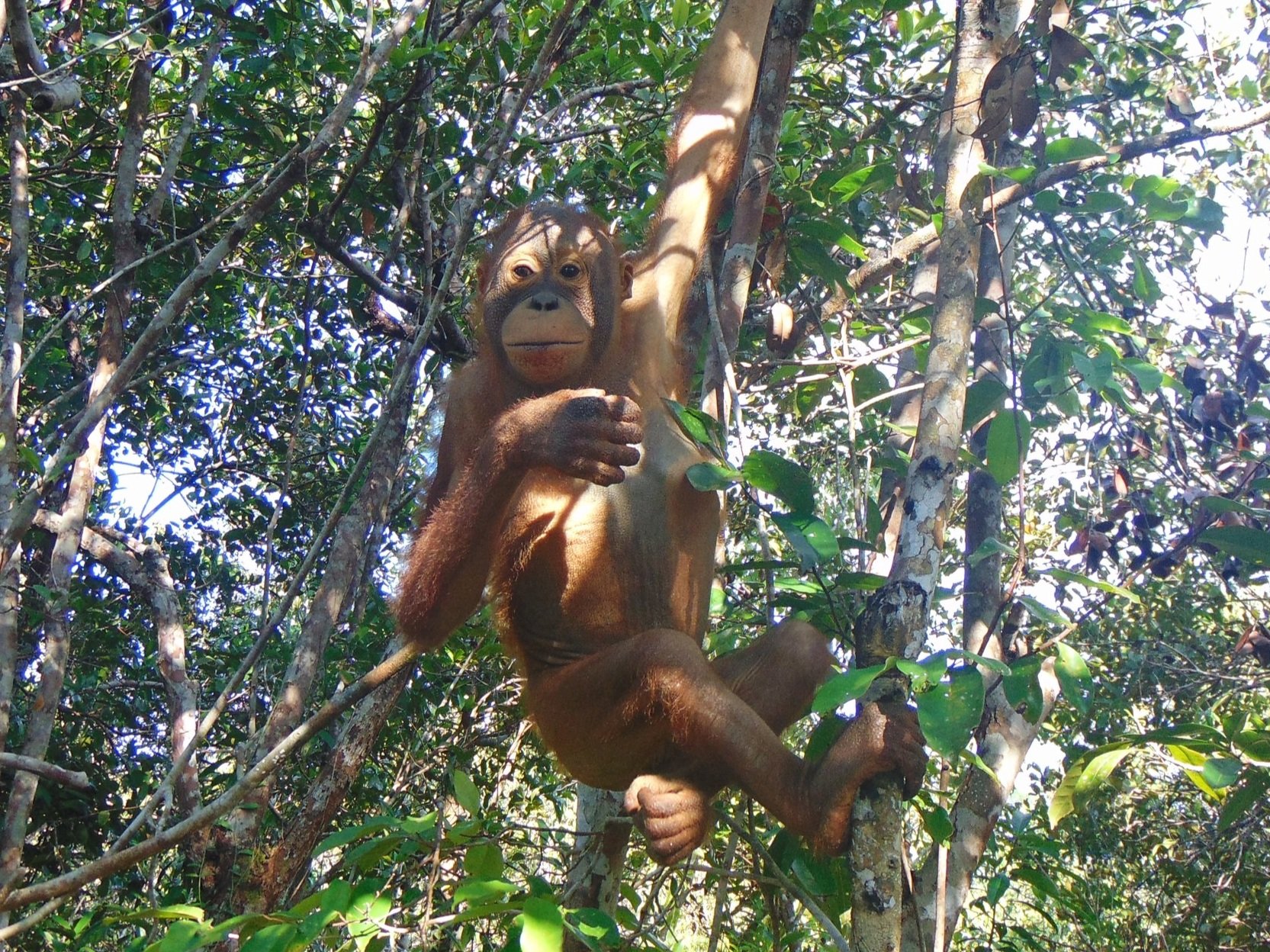
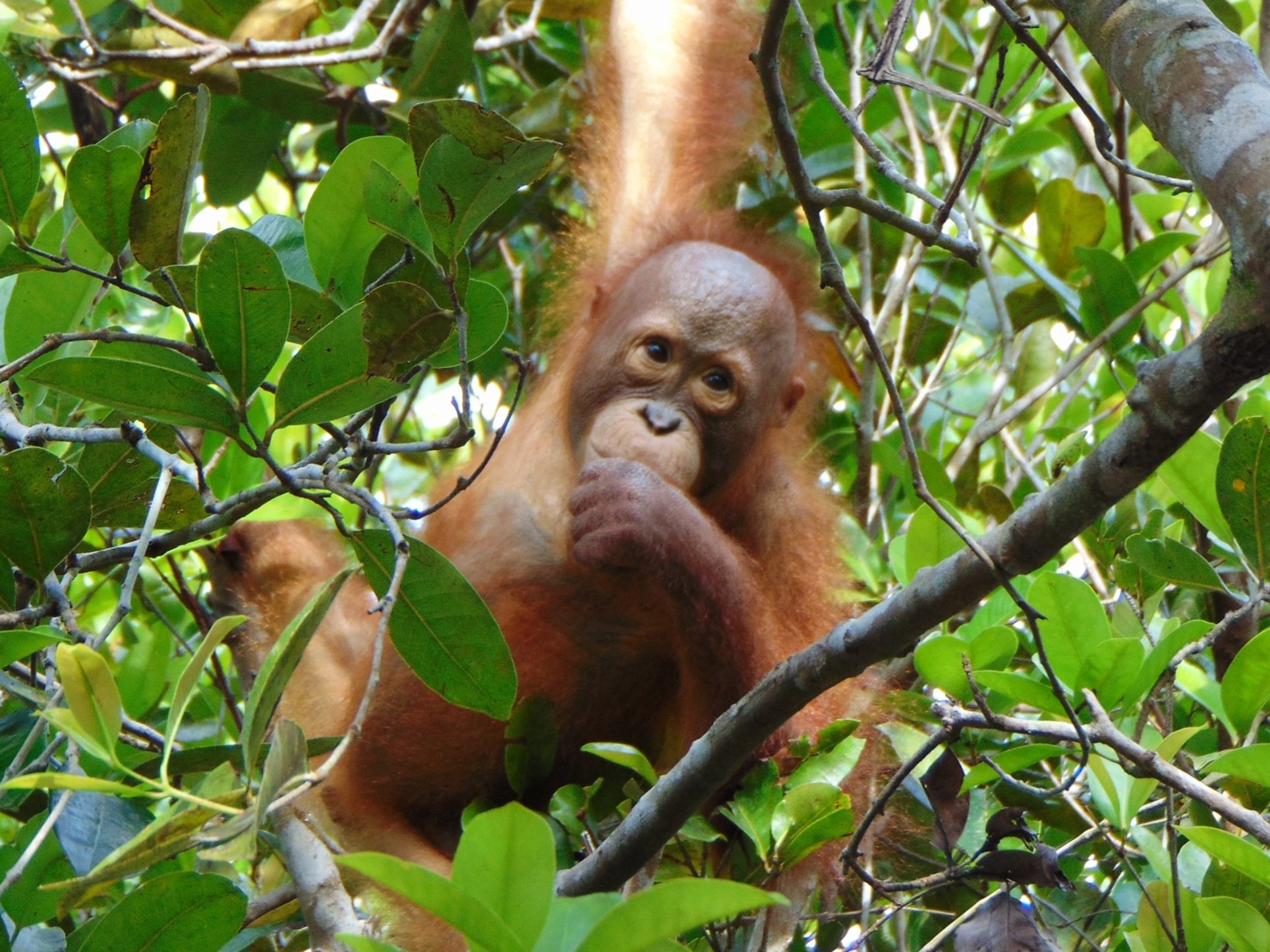
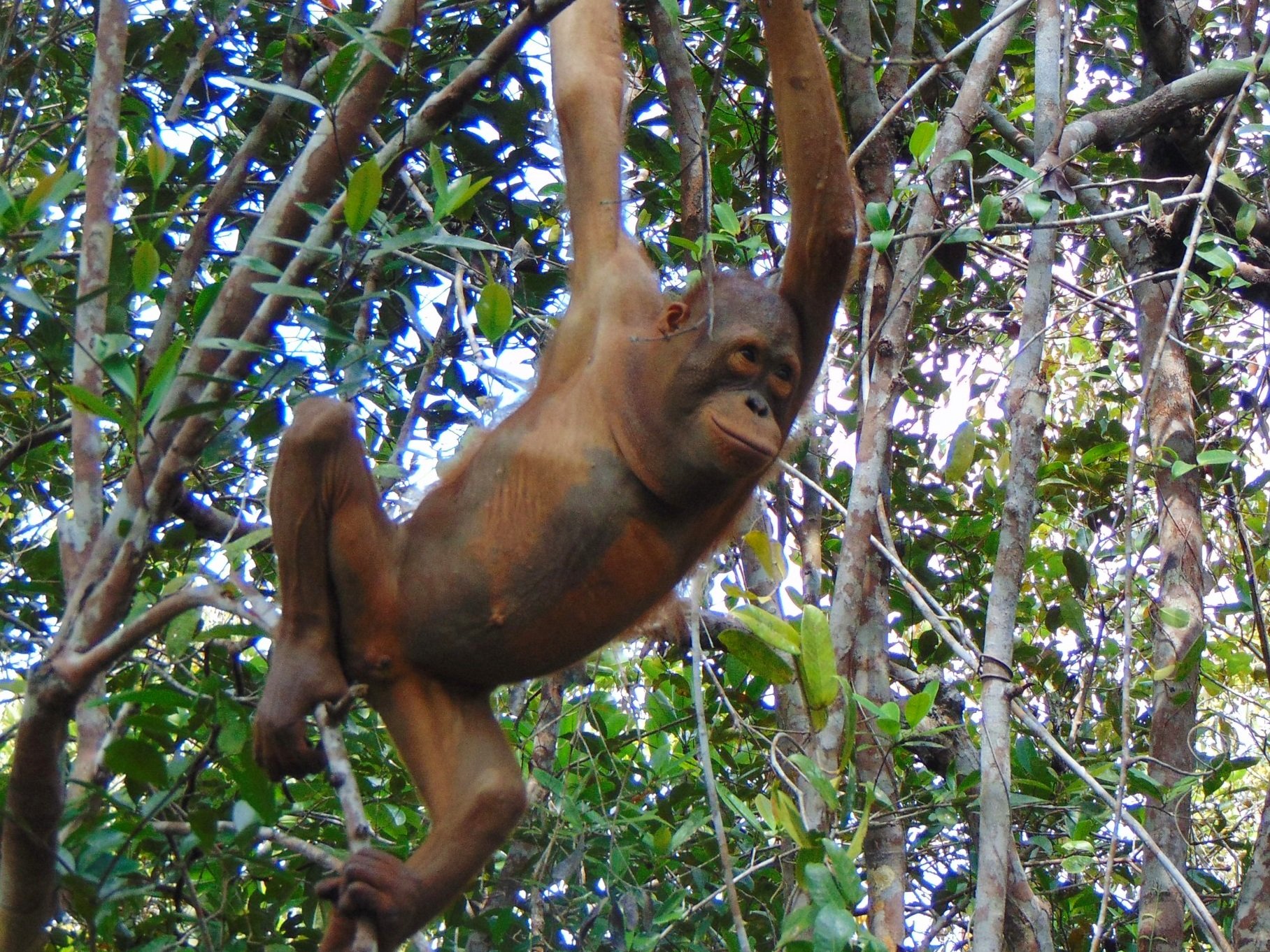
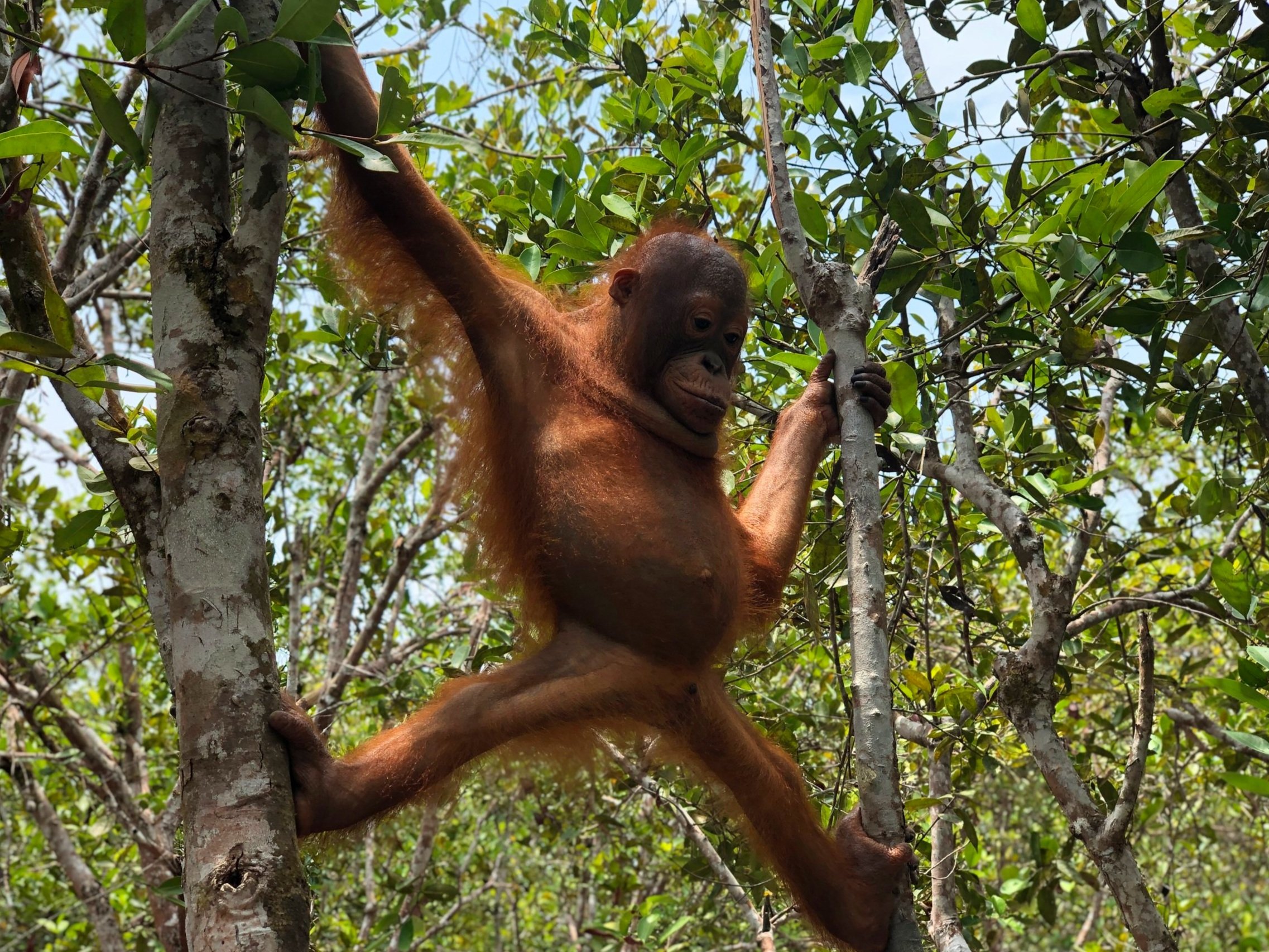
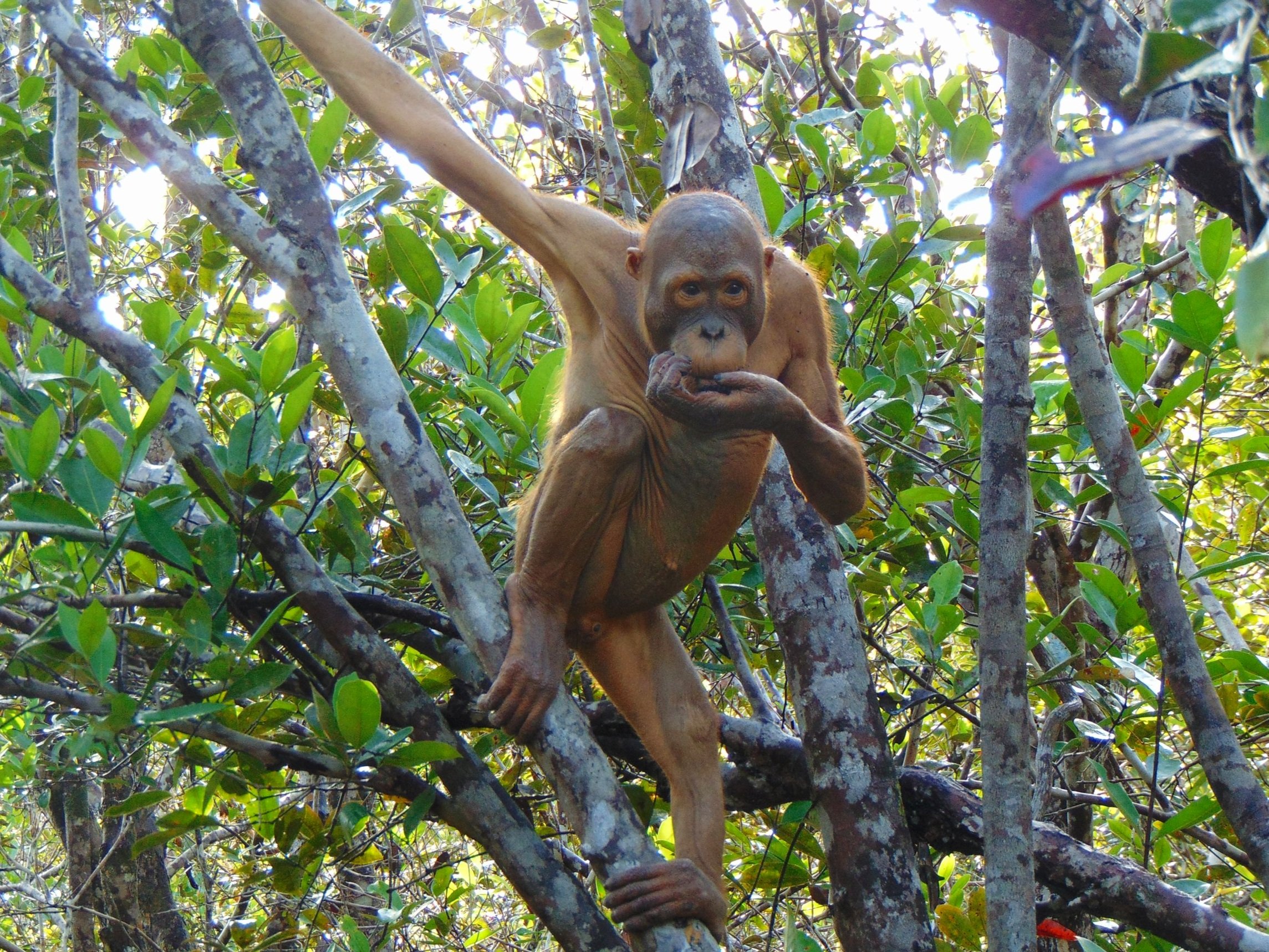
A week after his latest illness, our team were delighted to see that Boy’s blood tests were looking more positive. What’s more, the growing great ape appears to have more energy and has bounced back to his usual active self, frolicking with the others in the forest again. We will continue to keep a close eye on Boy’s health as he progresses and we look forward to the day when he will be experienced and strong enough to be released on his own into the wild.
We all have ups and downs, and Boy’s story is another reminder of how like us orangutans can be.

